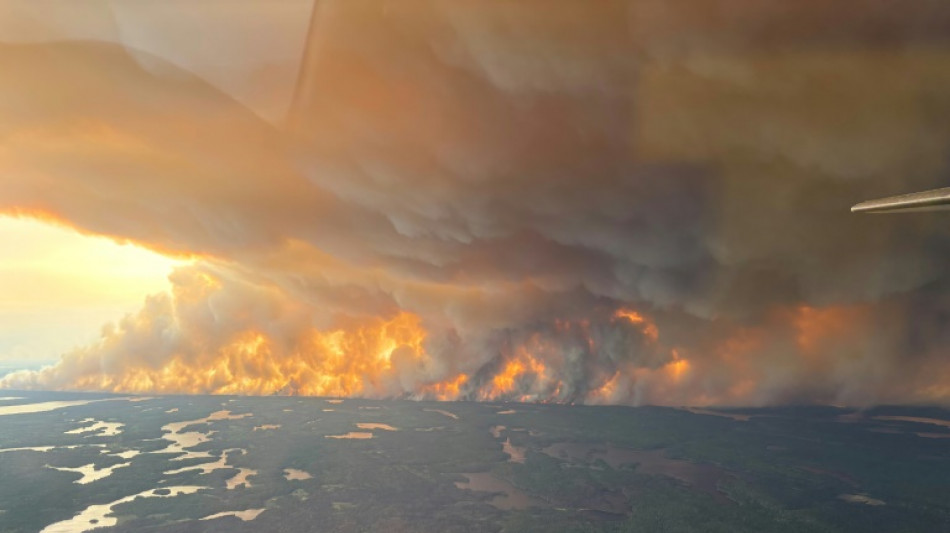
-
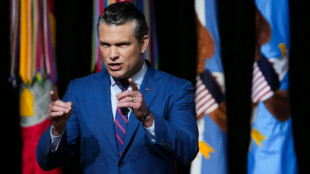 Pentagon chief tells US military leaders to fix 'decades of decay'
Pentagon chief tells US military leaders to fix 'decades of decay'
-
Spotify founder Daniel Ek to give up CEO role

-
 Barca star Yamal must 'work hard' to reach top level, says Flick
Barca star Yamal must 'work hard' to reach top level, says Flick
-
EU green lights Prada's bid for Versace

-
 New youth-led protests in Madagascar despite government's dismissal
New youth-led protests in Madagascar despite government's dismissal
-
Sinner to face teenager Tien in Beijing final as Gauff battles on

-
 Gold hits record, dollar drops as US shutdown looms
Gold hits record, dollar drops as US shutdown looms
-
Hamas reviewing Trump's Gaza plan
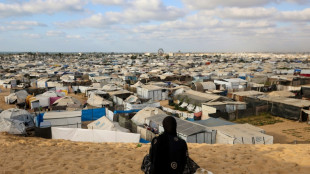
-
 Alcaraz beats Fritz in Tokyo for eighth title of season
Alcaraz beats Fritz in Tokyo for eighth title of season
-
Vietnam jails former officials over gold bar graft: state media

-
 German far-right MP's ex aide jailed for spying for China
German far-right MP's ex aide jailed for spying for China
-
Who will take 30,000 asylum seekers? EU solidarity faces big test
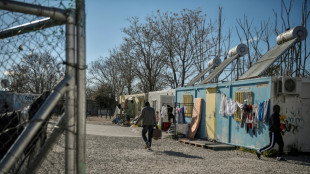
-
 PSG's Kvaratskhelia to miss Barcelona Champions League trip
PSG's Kvaratskhelia to miss Barcelona Champions League trip
-
Endometriosis test backed by French government under scrutiny

-
 Madagascar protesters undeterred despite sacking of government
Madagascar protesters undeterred despite sacking of government
-
Saliba signs new long-term deal at Arsenal

-
 Sinner powers into Beijing final as Gauff survives Bencic test
Sinner powers into Beijing final as Gauff survives Bencic test
-
Madagascar protesters mobilise despite firing of government

-
 Gauff calls for shorter tennis seasons as 'impossible' to play more
Gauff calls for shorter tennis seasons as 'impossible' to play more
-
Hamas yet to respond on Trump's Gaza plan
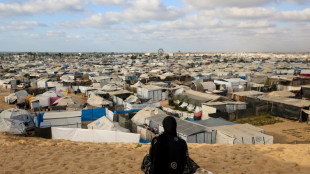
-
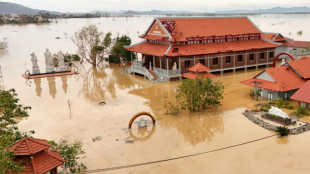 Long-lasting Typhoon Bualoi devastates Vietnam, killing 19
Long-lasting Typhoon Bualoi devastates Vietnam, killing 19
-
Dozens missing, three dead in Indonesia school collapse

-
 India hot favourites for home Tests against struggling West Indies
India hot favourites for home Tests against struggling West Indies
-
Taliban internet cut sparks Afghanistan telecoms blackout
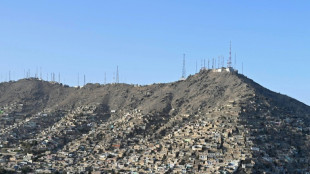
-
 San Siro on course for demolition after sale to Inter and AC Milan approved
San Siro on course for demolition after sale to Inter and AC Milan approved
-
Trial opens over Bangkok murder of French-Cambodian ex-MP

-
 Gauff survives tense Bencic test to reach Beijing quarter-finals
Gauff survives tense Bencic test to reach Beijing quarter-finals
-
US careens toward government shutdown as both parties dig in
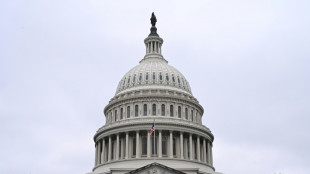
-
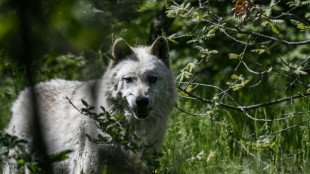 Wolf attack in Greece prompts calls for hunting rights
Wolf attack in Greece prompts calls for hunting rights
-
Trump to address rare mass meeting of US military leaders

-
 Iranian director Jafar Panahi defies censors again with new film
Iranian director Jafar Panahi defies censors again with new film
-
Taliban impose communications blackout across Afghanistan
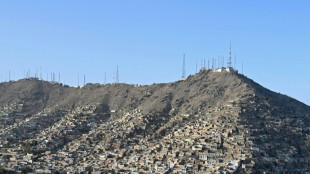
-
 Barca's Yamal eyes up PSG after Ballon d'Or miss
Barca's Yamal eyes up PSG after Ballon d'Or miss
-
PSG facing injury crisis as Barcelona present first big test

-
 British bettor Bloom's football empire blossoming with Belgian club USG
British bettor Bloom's football empire blossoming with Belgian club USG
-
US tariffs on lumber imports set for October 14

-
 Australia lose Maxwell for New Zealand T20s after freak net blow
Australia lose Maxwell for New Zealand T20s after freak net blow
-
India plans mega-dam to counter China water fears
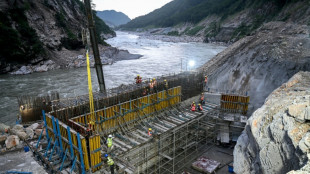
-
 Colombia manufactures its first rifles to replace Israeli weapons
Colombia manufactures its first rifles to replace Israeli weapons
-
Stocks rise, gold hits record as rate cuts and shutdown loom

-
 Dolphins star Hill suffers gruesome injury in Jets clash
Dolphins star Hill suffers gruesome injury in Jets clash
-
Paralympics' vote to lift Russian suspension 'bold step' as conflict rages: ex-IOC executive

-
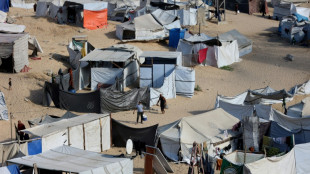 Gazans say Trump's peace plan a 'farce'
Gazans say Trump's peace plan a 'farce'
-
UN Security Council to vote on future of foreign Haiti force

-
 Far-right German MP's ex-aide faces verdict in China spy case
Far-right German MP's ex-aide faces verdict in China spy case
-
YouTube to pay $22 million in settlement with Trump

-
 U.S. Polo Assn. Delivers Elevated Americana With the 2025 Fall-Winter Global Collection From Denver, Colorado
U.S. Polo Assn. Delivers Elevated Americana With the 2025 Fall-Winter Global Collection From Denver, Colorado
-
Internet outrage over Trump's AI conspiracy video

-
 Coalition of states vows to protect access to abortion pill under Trump review
Coalition of states vows to protect access to abortion pill under Trump review
-
Trump meets Democrats without breakthrough on imminent shutdown


Canada, US warn of air quality hazards as Canadian fire smoke reaches Europe
Canada's wildfires, which have already forced evacuations of more than 26,000 people, continued their stubborn spread Tuesday, with heavy smoke choking millions of Canadians and Americans and reaching as far away as Europe.
Alerts were issued for parts of Canada and the neighboring United States warning of hazardous air quality.
A water tanker air base was consumed by flames in Saskatchewan province, oil production has been disrupted in Alberta, and officials warned of worse to come with more communities threatened each day.
"We have some challenging days ahead of us," Saskatchewan Premier Scott Moe told a news conference, adding that the number of evacuees could rise quickly.
Every summer, Canada grapples with forest fires, but an early start to the wildfire season this year and the scale of the blazes -- over two million hectares (494,000 acres) burned -- is worrying.
The provinces of Saskatchewan and Manitoba have been hardest hit. Both declared wildfire emergencies in recent days.
"This has been a very difficult time for many Canadians," federal Emergency Management Minister Eleanor Olszewski told reporters in Ottawa.
"This wildfire season has started off more quickly, and it's stronger, more intense," she said, adding that the Canadian military has deployed aircraft to evacuate remote towns in Manitoba and was ready to also assist Saskatchewan and Alberta with firefighting.
Climate change has increased the impact of extreme weather events in Canada, which is still recovering from the apocalyptic summer of 2023 when 15 million hectares of forests were scorched.
As of Tuesday, there were 208 active fires across Canada. Half of them were listed as out of control, according to the Canadian Interagency Forest Fire Centre.
Many of the affected populations are Indigenous, and some small communities have burned to the ground.
- 'Very intense few weeks' -
Heavy smoke from the fires, meanwhile, has engulfed part of the continent, forcing residents of four Canadian provinces and the US states of Michigan, Minnesota, Nebraska and Wisconsin to limit outdoor activities.
"Smoke is causing very poor air quality and reduced visibility," Environment Canada said in a statement.
Wildfire smoke is comprised of gaseous pollutants such as carbon monoxide, along with water vapor and particle pollution, which can be particularly hazardous to health.
Some of the worst smoke was in Alberta where three major oil sands producers -- Canadian Natural Resources, MEG Energy Corp, and Cenovus Energy -- this week evacuated workers and temporarily shut down hundreds of thousands of barrels of production per day.
Huge plumes of smoke even reached Europe, the European Union's climate monitoring service said Tuesday.
Due to their very high altitude, they do not pose an immediate health risk, according to the Copernicus Atmosphere Monitoring Service (CAMS), but are likely to result in hazy skies and reddish-orange sunsets.
Additional plumes are expected to shade both continents in the coming days.
"Central regions of Canada have experienced a very intense few weeks in terms of wildfire emissions," noted Mark Parrington, scientific director at CAMS.
Canadian authorities have forecast a more intense fire season than usual in central and western Canada, due in particular to severe or extreme drought.
"The significant reduction in snowpack in the spring led to early exposure of soil and vegetation, accelerating surface drying," explained University of Ottawa professor Hossein Bonakdari.
"This early exposure acted as a silent amplifier, subtly setting the stage for extreme fires long before the first flame ignited," he said.
Elsewhere, extensive forest fires have been raging in Russia's Far Eastern Federal District since early April, particularly east of Lake Baikal, generating carbon emissions of around 35 million tons, Copernicus reported.
K.Hofmann--VB
